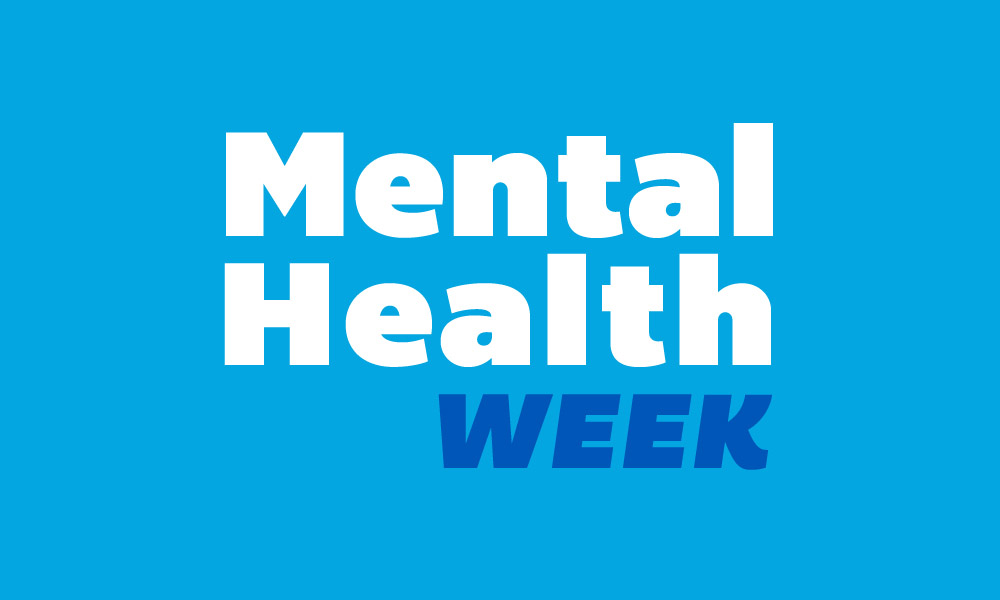We experience many relationships throughout our lives – with family, friends, intimate partners, colleagues and so many other people. Those relationships may come and go over time, but one is constant – the relationship you have with yourself.
“We need to put work into ourselves,” says Sydney Bennell, a registered nurse and health promotion specialist in Wellness and Psychological Services (WPS). “Intentionally practicing self-care can help you feel motivated to do what you need to do, manage the stress in your life, be able to take care of others and take challenges in stride,” she says. “It isn’t selfish.”
We asked five members of the MacEwan community – a psychology student, registered nurse, registered psychologist, fitness programmer and a member of our executive – to share their best self-care tips. Here’s what they had to say.
Tip 1: Bubble baths and scented candles are optional
Self-care is about honouring and listening to yourself – checking in and asking yourself what you need and what will help you at that moment, says Tory Pino, chair of WPS.“Don’t be afraid to experiment,” he says. “If bubble baths and scented candles are your thing, that’s great (I personally can’t think of anything more stressful), but try to move beyond that. Maybe you need to take time for yourself. Maybe you need to connect with others. It could be movement. Adding light to your environment (or taking it away).”
Sometimes, adds Bennell, self-care can simply mean getting up and brushing your teeth or texting your mom. “It doesn’t need to cost a lot – or anything at all. It’s about taking care of your physical, mental, emotional and spiritual needs in different ways.”
Pino suggests an attitude of exploration when looking at new ways of taking care of yourself. “Be willing to try new things, explore new strategies and step a little bit out of your comfort zone. There are so many different strategies you can try. Ultimately, it’s about being intentional with those check-ins and honouring yourself and what you might need.”
 FIND EVENTS
FIND EVENTS
Tip 2: Think of self-care like charging your phone
“Recharging yourself isn’t something you can do every once in a while or you’re going to run out of battery,” says Pino. “For self-care to work as an effective stress management tool, we need to check in with ourselves every single day and get the help we need when we’re not okay.”
That’s important because the National College Health Assessment Survey showed that more than 58 per cent of student respondents felt stress negatively impacted their academic success. Almost 80 per cent reported stress levels that were moderate to high within the 30 days before they completed the survey.
Tip 3: Find the time
We get it. Self-care is important. We need to set aside time for it. But how?
Brayden Ritter, a Bachelor of Science student in his final term studying psychology, lives that challenge. With a full course load and a weekly six-hour volunteer commitment sharing mental health tips on social media for the Peer Health Education Team, he doesn’t have a lot of wiggle room.
He’s careful to schedule self-care and tries to think of those things as being just as crucial as studying or writing an essay. But he also admits that when things take longer than planned, self-care is usually the first thing to go. That’s when he leans on some quick ways to check in.
“When I’m walking through the halls, I’ll do a quick body scan, being mindful of my foot touching the ground, lifting my leg to take a step and centring myself by doing that,” he says. “Even taking those few minutes for myself is really powerful and gives me a clearer mind.”
He also recommends the 5-4-3-2-1 grounding exercise as a quick way to bring yourself back to the present moment when you find yourself worrying about the future or dwelling in the past.
“Bringing myself into the present moment makes it easier to go about my day.”
Tip 4: Use the new Sensory Enhancement Studio on campus
“As someone who struggles with overstimulation and sensory issues regularly, I need quiet time after busy or overwhelming tasks,” says Megan Denholm, fitness programmer with Sport and Wellness. “I’ve created a quiet room at home with blankets, soft lighting and noise-cancelling headphones where I can decompress.”
Now students can enjoy those same things right on campus. Sport and Wellness is piloting a new Sensory Enhancement Studio during Mental Health Week, with plans to explore different themes and scheduled drop-in times throughout the rest of the year. (Don’t forget that access to Sport and Wellness facilities is part of enrolment for students taking six credits or more per term).
“We will have bean bag chairs, yoga swings, hammocks, a water feature, a lighting feature, fidget toys, meditative music and meditation mats,” says Denholm. “It’s a place where students can get away from everything else and just be – where they can show up, slow down, stop, reflect, be mindful and rest.”
Tip 5: Fill your toolkit
“If I could share a single self-care tip, it would be to remind ourselves that we are worthy of our own care,” says Tim Tang, associate vice-president, Students.
Paying attention to your physical self-care, building your emotional resilience and reframing how you view problems and challenges are all important ways of filling your mental health toolkit.
“It starts with giving ourselves permission to prioritize self-care and allowing yourself to be proactive in doing so,” he says. “The newest tool MacEwan students have access to is Headversity, an app-based resilience coach that encourages proactive and preventative measures for student mental health.”
 MyPortal.MacEwan.ca
MyPortal.MacEwan.ca
Tip 6: Know when to look for help
MacEwan has a range of mental health services, resources and partnerships that continue to grow, says Tang.
“We know that it’s critically important to focus on student mental health because it is a key component to having a successful and fulfilling academic experience,” he says.
When students need support, Tang hopes they will reach out to Wellness and Psychological Services to access the many mental health services, resources, and partnerships created by MacEwan’s multidisciplinary team of registered psychologists, nurses and clinical social workers.
"Over the past year, we have expanded our counsellor team and created a new position to help students in difficulty or crisis. As we look ahead to the future, we are planning to implement suicide prevention programming, prioritize early intervention initiatives, and develop educational resources,” says Tang. “We know students need mental health support, and we are working to enhance our offerings to provide it.”
